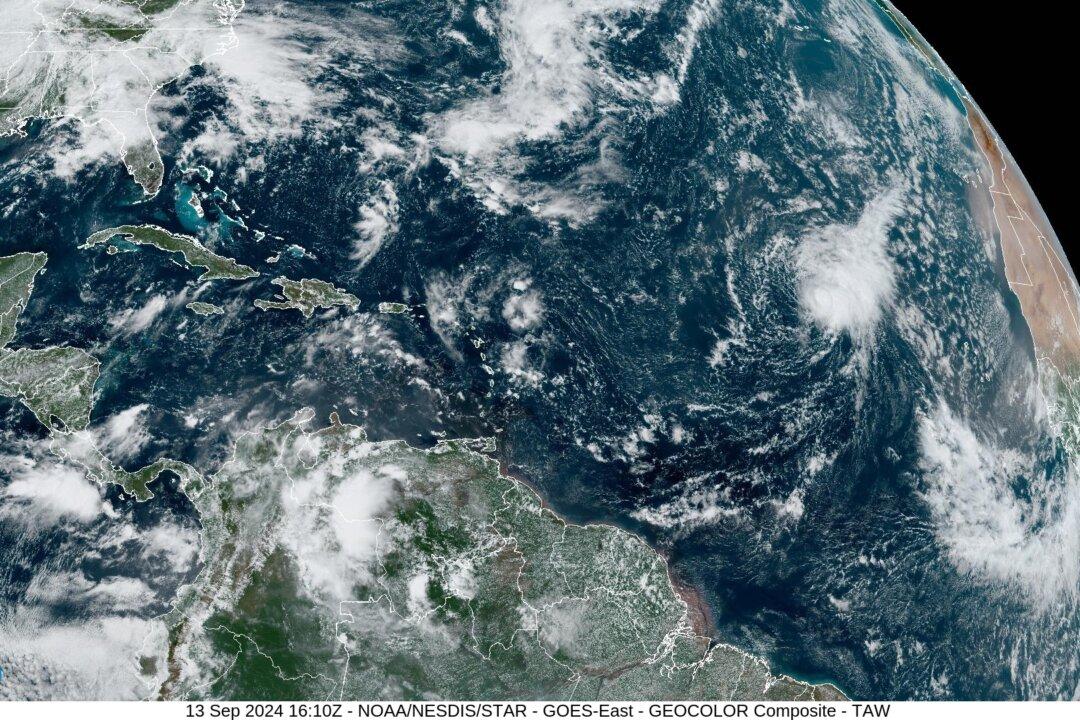Tropical Storm Gordon formed in the mid-Atlantic on the morning of Sept. 13, according to the National Hurricane Center.
It is the Atlantic’s seventh named storm for the 2024 hurricane season and appeared two days after Hurricane Francine made landfall in Louisiana. The Atlantic hurricane season runs from June 1 through Nov. 30.





